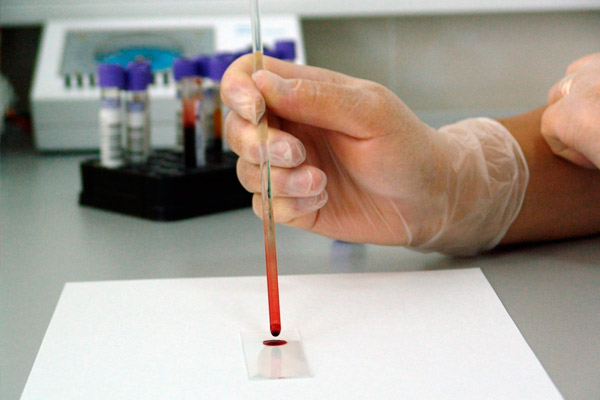
All iLive content is medically reviewed or fact checked to ensure as much factual accuracy as possible.
We have strict sourcing guidelines and only link to reputable media sites, academic research institutions and, whenever possible, medically peer reviewed studies. Note that the numbers in parentheses ([1], [2], etc.) are clickable links to these studies.
If you feel that any of our content is inaccurate, out-of-date, or otherwise questionable, please select it and press Ctrl + Enter.
Stomach flu: 12 things we should know
Medical expert of the article
Last reviewed: 07.07.2025

The stomach flu has received so many names among the people that it is impossible to count them all. It is called intestinal, abdominal, and stomach flu, although in fact it is not even flu at all. The real name of this disease is gastroenteritis, or rotavirus. What do we need to know about such a popular ailment in order to be cured in a timely and competent manner?
Fact #1: The stomach flu is actually norovirus
Stop blaming your stomach flu and instead learn the real name of your problem: norovirus. It belongs to a family of viruses that cause gastroenteritis, although adenovirus and astrovirus can also cause it. But rotavirus is the most common cause of viral gastroenteritis, especially in newborns, older adults, and young children.
Norovirus can spread like wildfire in any crowded place, causing outbreaks in kindergartens, schools, hospitals and offices.
Fact #2: The flu shot won't help in this case.
When people say "stomach flu," they're talking about the flu virus that circulates in the environment and attacks people through the nose and throat each year. Flu shots can protect against this virus, but not against the one that causes viral gastroenteritis.
Confusion between the common flu and stomach flu can be due to some symptoms that are common to both diseases. For example, it can be aches and pains throughout the body, nausea, low-grade fever, headache and muscle pain.
But among the symptoms of the common flu, there is no such thing as abdominal pain (at least in adults).
 [ 5 ]
[ 5 ]
Fact #3: It's highly contagious!
Stomach flu is spread by the "fecal-oral route," which is just as dangerous as the airborne route by which the common flu is spread. Stomach flu viruses are primarily transmitted through contaminated stool or vomit. Regular and thorough hand washing is the best defense against gastroenteritis.
Wash your hands especially thoroughly if you are changing diapers or cleaning up after a sick child, and adults in the family should always clean up after themselves and maintain personal hygiene.
 [ 6 ]
[ 6 ]
Fact #4: You can get stomach flu from food.
Viral gastroenteritis is not quite the same as food poisoning, which can result from any illness caused by industrial pollutants, including dangerous bacterial toxins like salmonella. But norovirus is the number one cause of all foodborne illnesses.

Viral gastroenteritis can be spread from person to person or by touching a contaminated surface. But you can also get viral gastroenteritis from sewage, contaminated food or water, or food prepared or handled by an infected person. Hence all those "wash your hands" signs in restaurants and hotel bathrooms.
 [ 7 ]
[ 7 ]
Fact #5: The viruses that cause stomach flu are tougher than the regular flu viruses.
Compared to other viruses, noroviruses can be surprisingly resilient and remain alive for several days. They remain on household surfaces even after cleaning, so they can spread easily. Even small amounts of the virus can cause infection.
To avoid contracting a stomach virus, wash your hands with soap and water, which is more effective than hand sanitizers. Avoid preparing food if you are sick (you may be contagious for 3 or more days after symptoms of flu or gastroenteritis have disappeared). Wash laundry carefully, using gloves, to avoid catching stomach flu from contaminated clothing and bedding.
Use eco-friendly cleaning products to kill the virus on hard surfaces.
Fact #6: Stomach flu symptoms come on slowly
Diarrhea, vomiting, and abdominal pain will not occur immediately after the viruses reach your gastrointestinal tract. Stomach flu symptoms usually develop gradually over a day or two.

But other types of food poisoning can strike quickly and severely, within just a few hours of eating something stale. Their symptoms tend to be more severe, such as sudden and prolonged vomiting and diarrhea.
Fact #7: Stomach flu goes away on its own
Both diseases - stomach flu and other types of food poisoning - are what doctors call "self-limiting," meaning they go away on their own and rarely require treatment.
It is important to know that norovirus is the leading cause of foodborne illness, but salmonella and other types of pathogens can lead to hospitalization or death.
If you have viral gastroenteritis, you should start to feel better after two or three days of illness. Food poisoning, on the other hand, is caused by something else – it hits you harder and faster, but it goes away faster, and you can return to your normal work routine in a day or two.
 [ 14 ]
[ 14 ]
Fact #8: Dehydration is the biggest risk with stomach flu
It goes without saying that if you are losing a lot of fluids due to watery diarrhea and vomiting, you need to drink fluids. But in addition to fluids, you are also losing sodium, potassium, and other minerals known as electrolytes, and these also need to be replenished through proper diet. To replenish potassium in the body, eat rice porridge with water and bananas - they are high in potassium.
If you have severe diarrhea, you should drink oral electrolyte solutions containing salts and sugars, as well as water. Energy drinks (especially for those who exercise) are not the best choice because they do not contain the right mix of salt and sugar to replace lost fluids.
Fact #9: When you have the stomach flu, soda is not the best choice.
Try to avoid drinking too much sugary soda or drinks like juice that contain a lot of sugar. The exception is orange juice, which is indicated for dehydration. The biggest mistake people with stomach flu make is simply trying to drink a lot of soda. They know they need to drink something to prevent themselves from getting dehydrated, but they do it wrong.

It is not advisable to consume dairy products, such as kefir and yogurt, milk, since the virus converts milk protein into a toxin, and your condition will only worsen. It is also not advisable to consume bread and sweets with soda, which are very poorly digested and absorbed.
If you have lost a lot of water, you need to drink chamomile infusions, still mineral water, green tea, and blueberry jelly.
Fact #10: Don't treat stomach flu with antibiotics
Many people mistakenly think that antibiotics are a must for stomach flu. But in reality, there is no treatment for viral gastroenteritis other than time and symptom relief. Antibiotics are useless, so don’t be surprised if your doctor doesn’t recommend them.

Instead, antidiarrheal medications are indicated for stomach flu, which can also help ease cramping and diarrhea. But you should avoid them if you have bloody diarrhea and a high fever, as this can make symptoms worse.
 [ 17 ], [ 18 ], [ 19 ], [ 20 ]
[ 17 ], [ 18 ], [ 19 ], [ 20 ]
Fact #11: Children, the elderly, and pregnant women are at greatest risk.
In preschool and school-aged children, the immune system is still weak enough to fight viral infections, and children and the elderly are at greater risk of dehydration with stomach flu. Elderly people are more prone to viral gastroenteritis, and it takes them longer to recover from the disease.
Anyone with chronic medical conditions such as heart disease, asthma, cancer or kidney disease, people susceptible to HIV or taking medications that suppress the immune system should always consult a doctor before taking anything for an upset stomach.
 [ 21 ], [ 22 ], [ 23 ], [ 24 ]
[ 21 ], [ 22 ], [ 23 ], [ 24 ]
Fact #12: Don't Rush Your Way to Recovery
When the vomiting and diarrhea stop, you will, of course, feel very hungry. But you should not pounce on food, but wait a few days before you indulge in a feast. Eat small portions and drink in smaller quantities. If you overload your stomach, you will feel sick again too soon. So do not include fatty foods in your diet for now and give your stomach time to digest the food.
When should you see a doctor if you have stomach flu?
If you see blood in your stool or vomit, call your doctor. Diarrhea itself is not cause for alarm, but call your doctor if you experience extreme sluggishness, confusion, or changes in mental status, or no urine (or dark, concentrated urine). These are all signs of severe dehydration.

You also need medical attention if you do not feel better after three days of illness, have prolonged vomiting that prevents you from drinking normal amounts of fluid, or if your temperature rises above 100.4 degrees Fahrenheit (38 degrees Celsius).
Stomach flu is a rather dangerous disease that requires proper treatment. And then you will recover very quickly.

